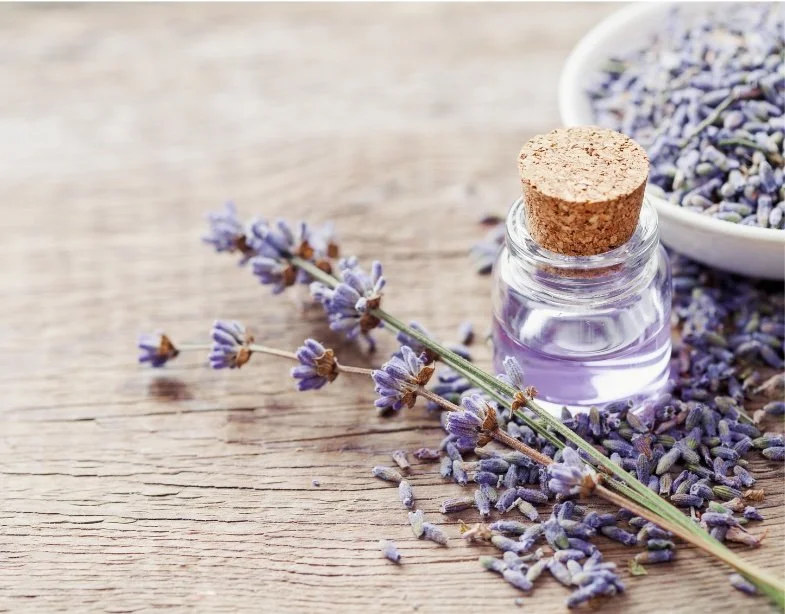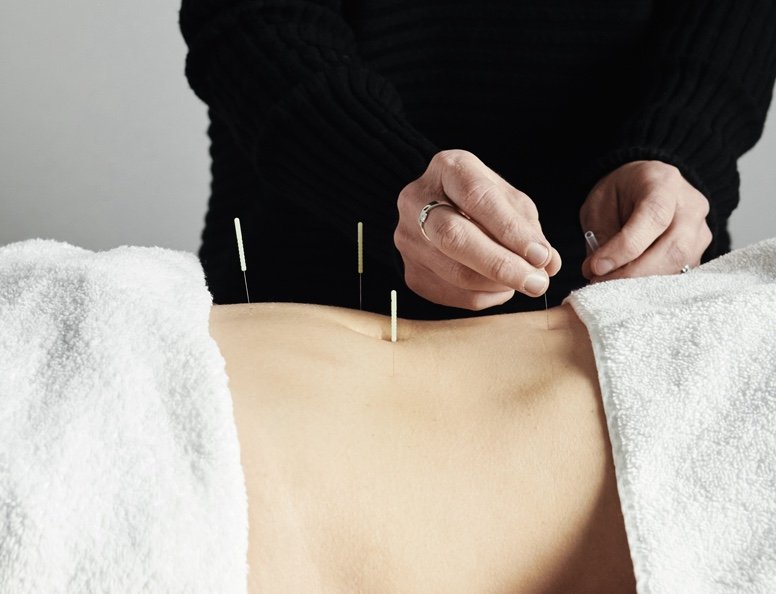
Chinese Medicine and Insomnia
Struggling to Sleep? You’re not alone.
Insomnia is one of the most common complaints in modern society – affecting up to 30% of adults either occasionally or persistently. Whether you suffer from difficulty falling asleep, restlessness and frequent waking, or dream disturbances, poor sleep can take a toll on every aspect of your life
Lack of sleep isn’t just annoying; it can lead to serious mental and physical issues. We’ve all undoubtedly felt the effect of a bad night’s sleep on our ability to concentrate or on our emotional state. Sleep deprivation reduces immune system function making you more prone to illnesses and has also been associated with an increased risk of obesity, cardiovascular disease and diabetes.
At East Melbourne Acupuncture, we offer a holistic approach to treating insomnia. Our experienced practitioners use a combination of Traditional Chinese Medicine (TCM), including acupuncture, and herbal medicine to help you regain deep, restorative sleep.
How Chinese Medicine Understands Insomnia
Unlike Western medicine, which often treats insomnia as a symptom, Chinese Medicine views insomnia as a reflection of deeper internal imbalances. According to Traditional Chinese Medicine theory, insomnia is associated with a disturbance or agitation of the Shen. The Shen represents our consciousness or spirit. Shen disturbance can happen for various reasons:
The Shen may not be adequately nourished by Qi, Blood or Yin and so becomes unanchored or uneasy
The Shen may be overstimulated by Heat and is therefore unable to settle at night
The Shen may be “locked in” or agitated by a blockage in Qi or Blood flow
Common Chinese Medicine Patterns of Diagnoses Associated with Insomnia
LIV Blood Deficiency: Difficulty falling asleep or frequent waking and vivid dreams. Forgetfulness, sore eyes and irritability.
Liver Qi Stagnation: Restlessness, irritability, and waking between 1-3am. Associated with stress, anxiety or depression.
Spleen and Heart Qi Deficiency: Light, unrefreshing sleep, fatigue, and poor memory. Over occurs with overthinking.
Kidney Yin Deficiency: Chronic insomnia, hot flushes, and dry mouth—common in menopause.
Each person’s insomnia is different, and that’s why Chinese medicine doesn’t offer one-size-fits-all solutions. At East Melbourne Acupuncture, we conduct a thorough Traditiona Chinese Medicine diagnosis—including tongue and pulse assessment—to determine your unique pattern of imbalance.
Acupuncture for Sleep Issues
Acupuncture may be considered an effective natural therapy for treating insomnia. It works by regulating the nervous system, increasing melatonin production, reducing stress and restoring internal harmony.
Clinical Evidence:
Multiple clinic trials have examined the effectiveness of insomnia acupuncture treatment
A systematic review published in Sleep Medicine concluded acupuncture was associated with significant improvements in several objective sleep parameters, including increases in total sleep time and sleep efficiency, and reductions in number of awakening times during the night (1).
Studies examining acupuncture treatments for insomnia associated with various conditions, including obstructive sleep apnoea (2), ischemic stroke (3), perimenopause (4), Parkinsons Disease (5) and cancer (6), showed significant improvements in sleep quality and quantity.
A study examining acupuncture during pregnancy found acupuncture treatments increased melatonin levels and significantly improved sleep (7).
fMRI research has shown that acupuncture can modulate brain activity related to sleep regulation and stress response (8)
Research Based Results
What to Expect from Acupuncture Treatments
At East Melbourne Acupuncture, our gentle acupuncture treatments are calm and deeply relaxing. Most patients feel a sense of stillness and sleepiness during the treatment, which may continue for some time. Soothing music and sleep meditation tracks played through noise-cancelling headphones enhance the effect. A full acupuncture course typically involves 1–2 treatments per week for 4–8 weeks, depending on the severity and duration of insomnia.
Chinese Herbal Medicine for Better Sleep
Chinese herbal formulas are customised blends of plant-based ingredients designed to nourish the body, calm the Shen (spirit) and resolve underlying disharmonies that disturb sleep.
A recent study of 116 people with primary insomnia found Chinese herbal medicine increased average sleep time compared to the placebo group (9).
A large-scale meta-analysis of 58 clinical trials with 4590 participants with obstructive sleep apnoea showed Chinese herbal medicine enhanced sleepiness and improved various other health aspects including cognitive function, blood pressure and respiratory function (10)
An integrated Approach: Acupuncture + Chinese Herbal Medicine
Many of our patients see the best results from a combined approach that uses both acupuncture and Chinese herbs. This synergy often enhances therapeutic outcomes and supports long-term health.
Our practitioners take time to understand your unique health history and develop a tailored Chinese medicine treatment plan.
Frequently Asked Questions
Is acupuncture safe for treating insomnia?
Yes. Acupuncture is a safe, drug-free therapy with minimal side effects when performed by qualified professionals.
How quickly will I see results?
Some patients sleep better after just one session, while others notice gradual improvement over several weeks.
Can Chinese Medicine help with sleep and anxiety together?
Absolutely. Traditional Chinese Medicine treats the root cause of both, and many herbal formulas address anxiety-related insomnia.
Refecences
Zhao et al (2021) Can acupuncture improve objective sleep indices in patients with primary insomnia? A systematic review and meta-analysis. Sleep Med. 80:244-259
Wang et al (2020) Acupuncture for Obstructive Sleep Apnea (OSA) in Adults: A Systematic Review and Meta-Analysis. Biomed Res Int.
Cao et al (2022) Acupuncture for insomnia after ischemic stroke: an assessor-participant blinded, randomized controlled trial. Acupunct Med. 40(5):443-452
Zhao et al (2023). Acupuncture for comorbid depression and insomnia in perimenopause: A feasibility patient-assessor-blinded, randomized, and sham-controlled clinical trial. Front Public Health. 2023 11:1120567
Lin et al (2024). Effects of acupuncture on sleep quality in patients with Parkinson's disease: A systematic review and meta-analysis. Clin Rehabil. 38(4):478-496
6. Zhang et al (2022). Acupuncture for cancer-related insomnia: A systematic review and meta-analysis. Phytomedicine. 102:154160
7. Foroughinia et al (2020) Effect of Acupuncture on Pregnancy-Related Insomnia and Melatonin: A Single-Blinded, Randomized, Placebo-Controlled Trial. Nat Sci Sleep. 2:271-278.
8. Jiang et al (2024) Acupuncture modulates emotional network resting-state functional connectivity in patients with insomnia disorder: a randomized controlled trial and fMRI study. BMC Complement Med Ther. 24(1):311
9. Xiong et al (2024) Efficacy of Chinese Medicine Treatment Based on Syndrome Differentiation for Primary Insomnia: A Randomized Placebo Controlled Triple-Blinded Trial. Chin J Integr Med.30(10):867-876
10. Birling et al (2024) Chinese herbal medicine for obstructive sleep apnoea: a systematic review with meta-analysis. Sleep Breath. 29(1):56
Book Your Sleep Consultation Today
Discover how acupuncture and Chinese herbal medicine can restore deep, restful sleep.
East Melbourne Acupuncture offers a more natural sleep solution to all sleep deprived people in East Melbourne and surrounding suburbs, Collingwood, Fitzroy, Abbotsford, Richmond and the Melbourne CBD.
Contact us via phone or email or book an appointment today.



